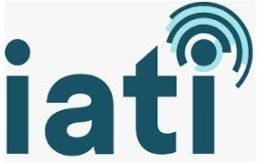By now everybody knows what must happen to transform our world into The World We Want. The 17 interrelated 2030 Agenda Sustainable Development Goals (SDGs) states it crystal clear. But these goals cannot be realised through isolated initiatives – for that the world does not have the time nor the money. Every nation and the whole global community has to partner and collaborate to achieve these ambitious goals, and that requires openness and transparency. To offer effective development and aid, we have to know who is doing and/or funding what, where and to what effect. With this information, we can:
- plan projects and programmes in a coordinated way
- take more efficient decisions, and
- create trust and confidence between donors and recipients
The critical importance of transparency in development cooperation and aid is often mentioned, but how to ‘walk the talk’ remains elusive. The International Aid Transparency Initiative (IATI ) fulfils this gap. As described on their website IATI is a “global initiative to improve the transparency and openness of resources flowing into developing countries and their results to address development goals.”
Data published in IATI covers information about organisations and their development or humanitarian work, including finances, location, sector, results, conditions and more. This information enables other implementing agents and donors to assess where new projects will have the greatest impact, it improves coordination and avoids duplication.
It also informs academics, politicians, campaigners, journalists, and the public on allocated resources and can be used to hold those who receive development funding or aid accountable on how they use these resources.
IATI currently has 91 members, including the Netherlands Ministry of Foreign Affairs who was also a founding partner. The Ministry has made IATI reporting a mandatory requirement for all development and aid organisations that they financially support. As one of their funded agents, Nuffic, where I am completing my internship, is in the process of adapting their existing Monitoring & Evaluation strategy so that all Orange Knowledge Programme reports are submitted in a common format that can be directly uploaded to IATI. A time consuming process, with many teething problems, but it is a necessary contribution to transparency in the global development agenda.
The IATA website, which is publicly available offers even more. Its d-portal Generator – an open source platform, has an information search function by recipient country or publisher (participating organisations). The Generator can produce a range of graphs, tables, maps and other visuals which may be freely use to develop content for own websites or blog posts. A good example of an embedded IATI website can be found on UN Development Group.
Since I am researching knowledge transfer initiatives in the food-security sector in South Africa, my search in the IATI Generator listed 25 active and 292 completed projects from 33 IATI publishers. Clicking deeper I could find further information of each project including contact details of projects I would like to include in my research.
It is a very valuable tool for nation states, development agents, researchers and the public at large. As IATI membership grows the light shines brighter and brighter on our global sustainable progress.
Spread the news.



